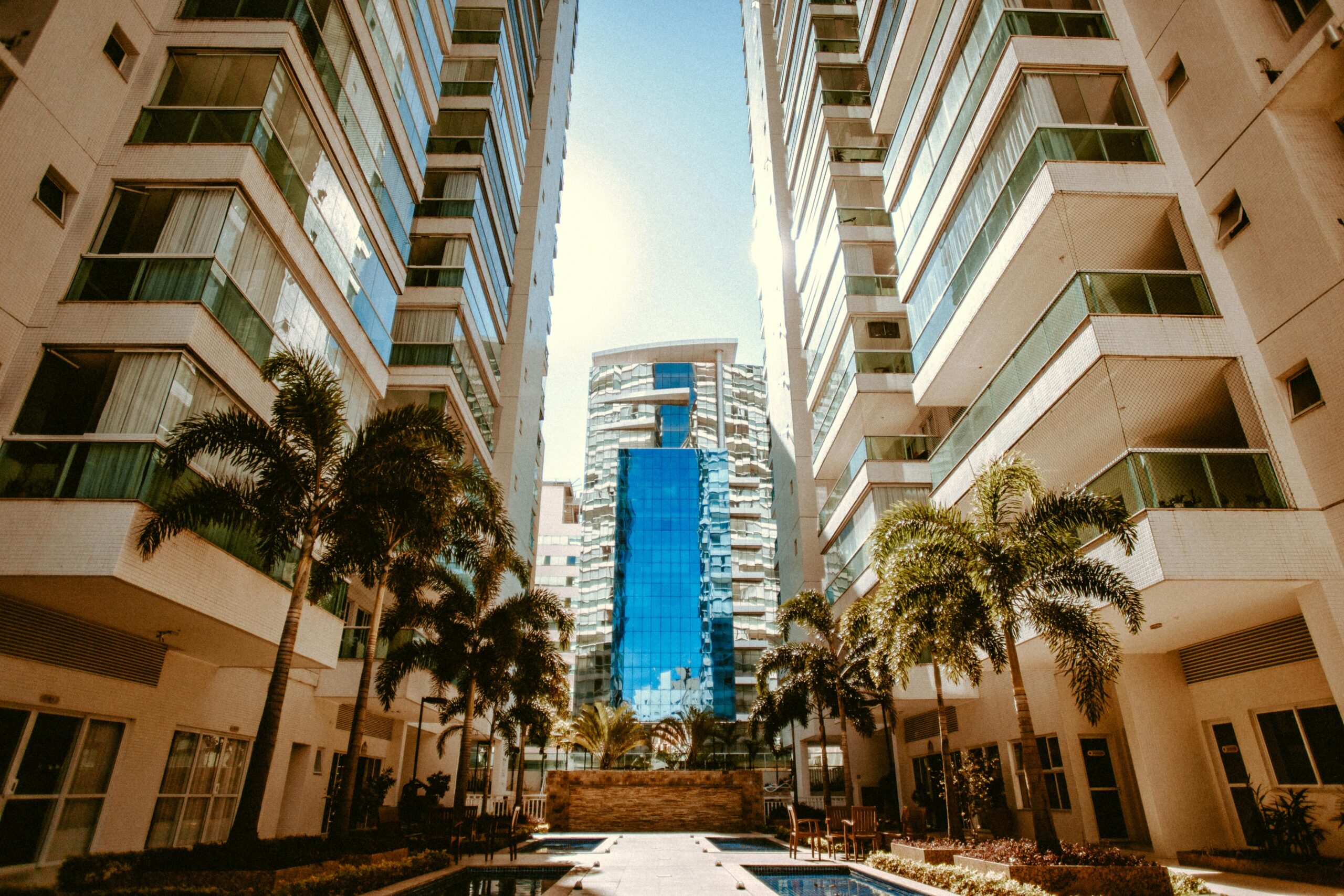
After years of fierce competition and bidding wars, Florida’s condo supply is experiencing a dramatic shift. A surge in new construction completions, combined with changing buyer preferences and economic factors, has created an oversupply situation that’s fundamentally altering the dynamics of condo purchasing across the Sunshine State. For the first time in nearly a decade, buyers are finding themselves in the driver’s seat with unprecedented negotiating power and expanded choices.
The Construction Boom Comes to Fruition
The current supply surge is largely the result of construction projects that began during the peak demand years of 2020-2022. Developers, encouraged by soaring prices and seemingly insatiable demand, launched ambitious projects across Florida’s major metropolitan areas. These developments, which typically take 18-36 months to complete, are now hitting the market simultaneously, creating an unexpected abundance of inventory.
Miami-Dade County alone has seen the completion of over 15 major condominium towers in the past 18 months, with another dozen scheduled for delivery by early 2026. Similar patterns are emerging in Tampa Bay, Orlando, Fort Lauderdale, and Naples, where luxury high-rises and mid-market developments are opening their doors to a market that has cooled considerably since these projects were conceived.
The timing couldn’t be more significant. Many of these new developments were pre-sold during the height of the pandemic boom when buyers were willing to purchase sight unseen and pay premium prices. However, as units become available for immediate occupancy, developers are discovering that the market that existed when they broke ground no longer matches current reality.
Changing Buyer Sentiment and Economic Pressures
The enthusiasm that characterized Florida’s real estate market during the pandemic has given way to a more cautious approach among potential buyers. Rising interest rates have dramatically increased the cost of financing, effectively pricing many buyers out of markets they could previously afford. A mortgage that would have cost $3,500 monthly in 2021 now approaches $5,500 for the same loan amount, forcing buyers to reconsider their purchasing power and priorities.
Additionally, the return to normal work patterns has reduced the urgency many felt to relocate to Florida. Remote work policies that seemed permanent during the pandemic have evolved, with many companies requiring at least partial office presence. This shift has cooled demand from out-of-state buyers who were driving much of Florida’s condominium market growth.
The cost of condo ownership has also become more transparent and concerning to buyers. Special assessments, rising insurance costs, and increasing homeowners association fees have made potential buyers more selective and price-conscious. High-profile building safety issues and costly repairs at older condominiums have created additional hesitancy among buyers who now scrutinize building financials and maintenance reserves more carefully.
Geographic Variations in Supply Impact
The supply surge isn’t affecting all Florida markets equally. Miami’s luxury condo market has been particularly impacted, with inventory levels reaching heights not seen since the post-recession period of 2010-2012. Developments in Brickell, Downtown Miami, and Miami Beach that commanded premium prices just two years ago are now offering substantial incentives and price reductions to attract buyers.
Tampa Bay’s condominium market is experiencing a more moderate supply increase, but the impact is still significant. New developments in downtown Tampa, St. Petersburg, and Clearwater are competing not just with each other but with a resurgent single-family home market that’s offering buyers alternative housing options at competitive prices.
Southwest Florida markets like Naples and Fort Myers, which experienced some of the most dramatic price increases during the pandemic, are now seeing new luxury towers compete with existing inventory that sellers are struggling to move at peak prices. The result is a market where buyers can choose between brand-new units with warranties and established properties at similar or lower price points.
Developer Response and Market Adjustments
Faced with slower absorption rates and increased inventory, developers are implementing various strategies to stimulate demand. Price reductions, while initially subtle, are becoming more common and substantial. Some developers are offering reductions of 10-15% from original pricing, though many are positioning these as “limited-time incentives” rather than permanent price cuts.
Beyond price adjustments, developers are enhancing value propositions through upgraded finishes, furniture packages, and extended warranty periods. Some are offering to cover closing costs, provide property tax prepayments, or include parking spaces and storage units that were previously sold separately.
Rental guarantees have also emerged as a popular incentive, particularly for investors. Developers are offering to guarantee rental income for the first one to three years, providing investors with predictable returns while units gain occupancy and establish rental histories.
Opportunities for Savvy Buyers
The current market conditions present unprecedented opportunities for well-positioned buyers. Those with strong credit profiles and substantial down payments are finding sellers increasingly willing to negotiate on price, terms, and included amenities. Multiple offer situations, once common, have become rare, allowing buyers time to conduct thorough due diligence and make informed decisions.
First-time buyers, in particular, are benefiting from increased inventory and seller concessions. Many are finding that they can afford newer construction with modern amenities at prices that were unimaginable just two years ago. The ability to compare multiple options within similar price ranges gives buyers leverage they haven’t enjoyed in years.
Investors are also finding attractive opportunities, particularly in markets where rental demand remains strong despite purchase market cooling. Properties that cash flow positively are becoming available, especially as some pandemic-era investors look to exit positions purchased at peak prices.
Financing and Market Dynamics
While increased inventory favors buyers, financing challenges continue to impact market dynamics. Higher interest rates mean that even with lower purchase prices, monthly payments may not be significantly reduced. However, the combination of price reductions and increased negotiating power is helping offset some of the financing cost increases.
Sellers are increasingly willing to offer financing concessions, including interest rate buydowns and assumption of existing low-rate mortgages where possible. These creative financing solutions are becoming important tools for facilitating transactions in the current environment.
Market Outlook and Future Implications
The current buyer’s market conditions are likely to persist through 2025 as the remaining pipeline of new construction continues to deliver units to market. However, the pace of new project launches has slowed dramatically, suggesting that supply pressures may ease in 2026 and beyond.
This market correction, while challenging for sellers and developers, is creating a healthier, more sustainable market environment. Prices are adjusting to levels that better reflect economic fundamentals rather than pandemic-driven speculation, and buyer behavior is returning to more typical patterns of careful consideration and thorough due diligence.

Conclusion
Florida’s condo supply transformation from seller’s to buyer’s market represents one of the most significant shifts in the state’s real estate landscape in over a decade. The convergence of increased supply, changing buyer preferences, and economic pressures has created opportunities for buyers who were previously priced out or faced overwhelming competition.
While this transition presents challenges for sellers and developers, it’s fostering a more balanced and sustainable market environment. Homebuyers now have the luxury of choice, time for proper evaluation, and genuine negotiating power. For those with the financial capability and long-term perspective, the current market conditions offer exceptional opportunities to purchase quality condominium properties at favorable terms.
As the market continues to adjust, successful participants will be those who adapt to the new reality and take advantage of the opportunities that buyer’s markets uniquely provide.





